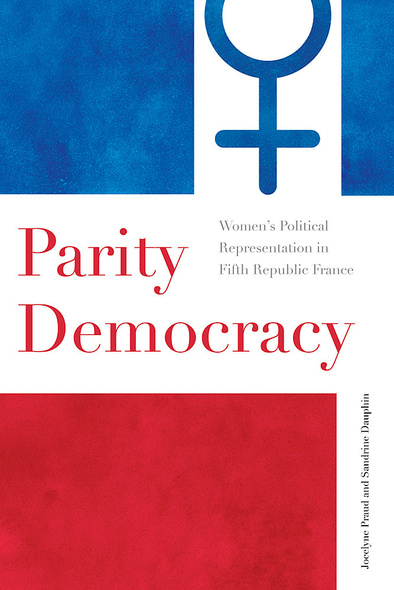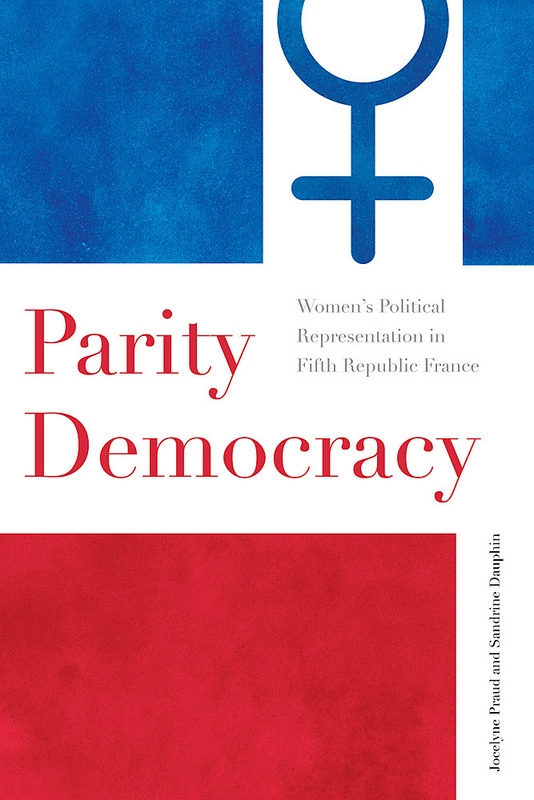
Parity Democracy
Women's Political Representation in Fifth Republic France
In recent years, several countries have adopted measures such ascandidate gender quotas to increase women’s presence in electoralpolitics. France adopted gender parity reforms – laws toensure equal access to elected office for women and men – in1999 and 2000. Have these reforms had a positive effect onwomen’s political representation?
In Parity Democracy, Jocelyne Praud and Sandrine Dauphinanswer this question by tracing the evolution of France’s genderparity reforms, from their historical roots to their recent extensionbeyond the electoral sphere. They combine analysis of women’shistorical struggle to acquire and exercise political rights,interviews with parity advocates and opponents, and translations of keyEuropean and French legal documents. This unique blend ofinterpretation, open-ended interviews, and primary documents offers awell-rounded perspective on the pros and cons of the parity reforms andtheir effect on women in politics.
Although parity reforms have not dramatically boosted women’srepresentation in the National Assembly, this book reveals that theyhave set in motion a process of feminization in the electoral spherethat bodes well for the future of parity democracy.
This book, which brings the story of parity democracy in France to an
English-speaking audience, is essential reading for students and
scholars of electoral democracy, as well as policy makers working to
improve the position of women in public life.
This book offers crucial insights into the parity movement in France. The interviews with parity advocates and critics are fascinating, providing new information not yet published in French or English. Reproducing the key parity documents is also a major contribution, as these are often referred to but not often discussed in terms of content in relation to the broader quota literature.
Jocelyne Praud teaches in the Departments ofPolitical Science at Kwantlen Polytechnic University and VancouverIsland University. Sandrine Dauphin is a researcheraffiliated with the Centre de recherches sociologiques et politiques deParis, a research laboratory of the Centre national de la recherchescientifique.
Introduction
1 French Women’s Struggle for Political Rights and Parity
Part 1: Interviews with Parity Advocates andCritics
2 Women’s New Cause: Gisèle Halimi
3 Equality in Difference: Monique Dental
4 Equality in the Political Sphere: Sylvie Ulrich
5 Favouring Equality of Opportunity in Politics: MichèleAlliot-Marie
6 A Voluntarist Measure to Achieve Equality: RoselyneBachelot-Narquin
7 An Extraordinay Measure to Overcome Men’s ExtraordinaryResistance: Yvette Roudy
8 A Tool for Equality: Geneviève Fraisse
9 Affirmative Action Rather than Parity: Christine Delphy
10 Institutionalizing the Division of the Sexes: Eleni Varikas
Part 2: Founding Documents on Gender Parity inPolitics
11 Declaration of Athens, 3 November 1992
12 Manifesto of the 577 for Parity Democracy, 10 November 1993
13 Decree No. 95-1114 on the Creation of an Observatoire de laParité entre les Femmes et les Hommes, 18 October 1995
14 Charter of Rome, 18 May 1996
15 Manifesto of the Ten for Parity, 6 June 1996
16 Constitutional Law No. 99-569 on Equality between Women and Men,8 July 1999
17 Law No. 2000-493 to Favour Women’s and Men’s EqualAccess to Elected Office, 6 June 2000
18 Constitutional Law No. 2008-724 on the Modernization of theInstitutions of the Fifth Republic, 23 July 2008
Conclusion
Appendix 1: Chronology on French Women’s Struggle forPolitical Rights
Appendix 2: Interview Guide
Notes
Bibliography
Index





